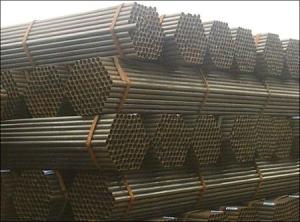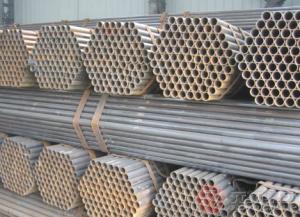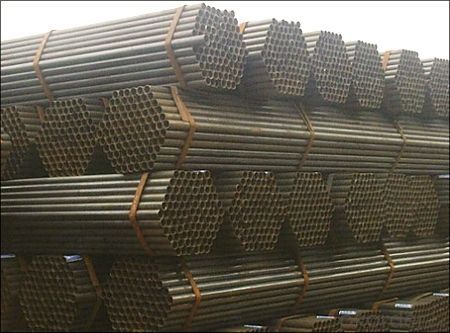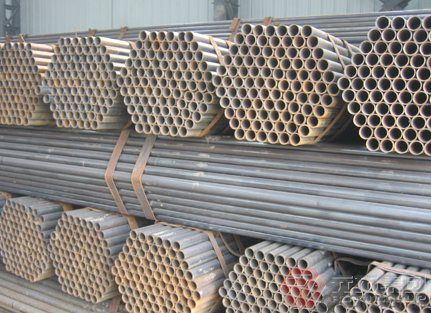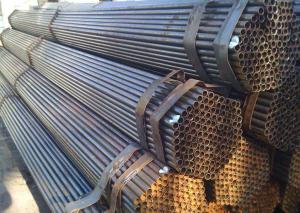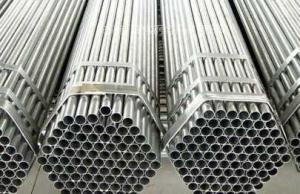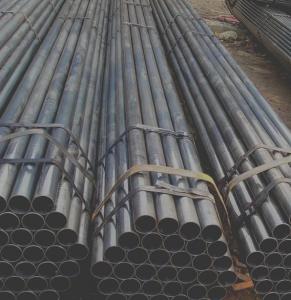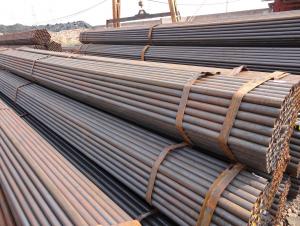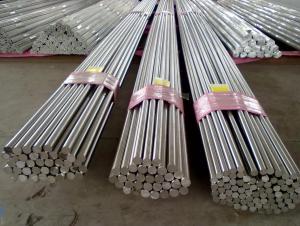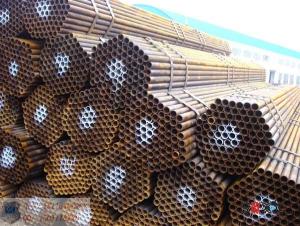Standard Steel Pipe Seamless A192-02 America Standard Steel Pipe
- Loading Port:
- China Main Port
- Payment Terms:
- TT or LC
- Min Order Qty:
- 25 kg
- Supply Capability:
- 9700 kg/month
OKorder Service Pledge
OKorder Financial Service
You Might Also Like
1、Structure of Seamless A192-02 America Standard Steel Tube :
Seamless A192-02 America Standard Steel Tube is to be used for conveying gas, water, and petroleum foroil and natural gas industries. And used for structural steel pies purpose. As the manufacturing process does not include any welding, seamless pipes are perceived to be stronger and more reliable. Historically seamless pipe was regarded as withstanding pressure better than other types, and was often more easily available than welded pipe.
2、Main Features of Seamless A192-02 America Standard Steel Tube :
• High manufacturing accuracy
• High strength
• Small inertia resistance
• Strong heat dissipation ability
• Good visual effect
• Reasonable price
3、Seamless A192-02 America Standard Steel Tube ,Specification:
Standard | GB, DIN, ASTM ASTM A106-2006, ASTM SPEC 5CT-2007 |
Grade | 10#-45#, 16Mn 10#, 20#, 45#, 16Mn |
Thickness | 8 - 33 mm |
Section Shape | Round |
Outer Diameter | 133 - 219 mm |
Place of Origin | Shandong, China (Mainland) |
Secondary Or Not | Non-secondary |
Application | Hydraulic Pipe |
Technique | Cold Drawn |
Certification | API |
Surface Treatment | factory state or painted black |
Special Pipe | API Pipe |
Alloy Or Not | Non-alloy |
Length | 5-12M |
Outer Diameter | 21.3-610mm |
Grade | 20#, 45#, Q345, API J55, API K55, API L80, API N80, API P110, A53B |
Standard | ASME, ASTM |
1) Material:20#(ASTM A 106/A53 GRB.API5LGRB,GB),45#,16Mn,10#.
2) Specification range:OD:21.3-610mm,WT:6-70mm,length:6-12m or according to the requirement of clients.
3) Excutive standards:GB,ASME API5L.ASTM A 106/A53,Despite of the above standards,we can also supply seamless steel pipe with standard of DIN,JIS,and so on,and also develop new products according to the requirements of our clients!
4、Packaging & Delivery
Packaging Details: | seaworthy package,bundles wrapped with strong steel strip |
Delivery Detail: | 15-30days after received 30%TT |
5、FAQ of Seamless A192-02 America Standard Steel Tube :
①How is the quality of your products?
Our products are manufactured strictly according to national and internaional standard, and we take a test
on every pipe before delivered out. If you want see our quality certifications and all kinds of testing report, please just ask us for it.
Guaranteed: If products’ quality don’t accord to discription as we give or the promise before you place order, we promise 100% refund.
③Why should you chose us?
Chose happens because of quality, then price, We can give you both.Additionally, we can also offer professional products inquiry, products knowledge train(for agents), smooth goods delivery, exellent customer solution proposals.Our service formula: good quality+good price+good service=customer’s trust
SGS test is available, customer inspection before shipping is welcome, third party inspection is no problem.
6、 Seamless A192-02 America Standard Steel Tube : Images:
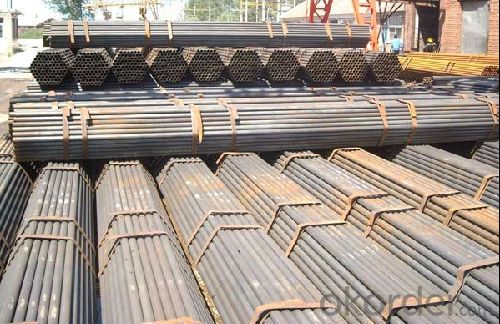
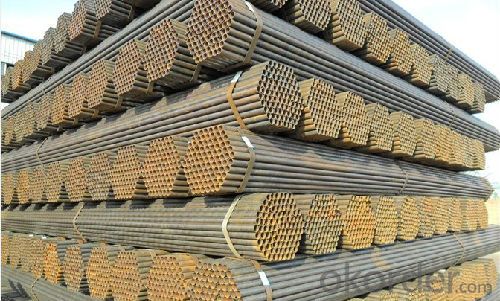
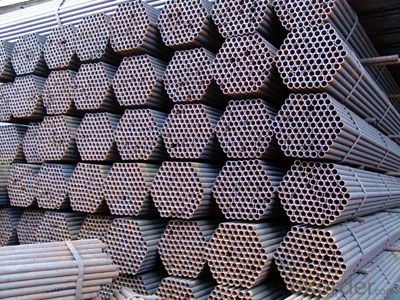
- Q: How is special steel used in the production of precision tools?
- Special steel is used in the production of precision tools due to its exceptional properties, such as high hardness, toughness, and wear resistance. These characteristics allow for the creation of tools with precise cutting edges that can withstand heavy loads and maintain their sharpness for longer periods of time. Additionally, the special steel's ability to resist deformation and retain dimensional stability ensures that precision tools can consistently deliver accurate and precise results, making them essential for various industries like manufacturing, automotive, and aerospace.
- Q: How does special steel contribute to the energy storage industry?
- Special steel plays a crucial role in the energy storage industry by providing high-strength and corrosion-resistant components for the manufacturing of batteries, turbines, and other energy storage systems. It enables the production of more efficient and durable energy storage devices, improving their overall performance and lifespan. Special steel also helps in reducing energy losses during storage and transmission processes, thus contributing to the increased efficiency of the energy storage industry.
- Q: Can special steel be used in the semiconductor manufacturing industry?
- Yes, special steel can be used in the semiconductor manufacturing industry. Special steel alloys with high levels of purity and specific properties, such as high thermal conductivity and resistance to corrosion, can be utilized in various applications within semiconductor manufacturing, including the fabrication of specialized tools, equipment, and components.
- Q: How does special steel perform in terms of weldability?
- Special steel generally has good weldability due to its composition and specific manufacturing processes. It can be easily joined or welded to other metals through various welding techniques. The high carbon content and alloying elements in special steel provide good heat resistance and prevent cracking during welding. Additionally, special steel often undergoes specific heat treatments to optimize its weldability, making it a preferred choice in industries that require strong and reliable welded structures.
- Q: What are the common failures or issues with special steel?
- Some common failures or issues with special steel can include brittleness, poor weldability, susceptibility to corrosion, and difficulty in heat treatment. Additionally, defects such as inclusions, voids, or cracks can also be observed, impacting the overall integrity and performance of the steel.
- Q: What are the factors that affect the machinability of special steel?
- There are several factors that can affect the machinability of special steel. First, the composition of the steel, including the type and amount of alloying elements present, can significantly impact its machinability. Additionally, the hardness and microstructure of the steel, which are influenced by factors such as heat treatment and processing, can also affect how easily it can be machined. Other factors that can play a role include cutting tool selection, cutting speed, feed rate, and coolant or lubricant used during machining.
- Q: What are the main applications of special steel in the food packaging industry?
- Special steel is widely used in the food packaging industry due to its various applications. It is primarily utilized in the production of food cans, closures, and other packaging materials. Special steel offers excellent corrosion resistance, ensuring the preservation and safety of the packaged food. It also provides high strength and durability, maintaining the integrity of the packaging during transportation and storage. Additionally, special steel can be easily formed into different shapes and sizes, allowing for versatile packaging designs. Overall, the main applications of special steel in the food packaging industry include ensuring food safety, promoting product longevity, and enabling creative packaging solutions.
- Q: What are the requirements for special steel used in power plants?
- Given the critical role that these materials play in ensuring the safe and efficient operation of power generation facilities, the requirements for special steel used in power plants are specific and stringent. Here are some of the key requirements: 1. Withstanding high temperatures: Special steel used in power plants must maintain its structural integrity even at elevated temperatures, especially in areas like the combustion chamber or steam turbines. 2. Excellent corrosion resistance: Power plants often operate in environments with high levels of moisture, chemicals, and other corrosive elements. Special steel must be able to resist corrosion to prevent degradation and premature failure. 3. High strength and toughness: Power plants generate substantial amounts of energy, so the components made of special steel must be strong and tough enough to withstand mechanical stresses and loads. This includes resistance to fatigue, creep, and stress corrosion cracking. 4. Good weldability: Welding is often necessary during the fabrication or maintenance of power plant components. Special steel should have good weldability to ensure strong and reliable joints that maintain the overall system's structural integrity. 5. Low thermal expansion: Special steel used in power plants should have low thermal expansion properties to minimize the risk of thermal stress and distortion caused by temperature variations during operation. This prevents premature failure and ensures dimensional stability. 6. Resistance to radiation: In some power plants, such as nuclear facilities, special steel may be exposed to radiation. Therefore, the steel should have good resistance to radiation damage, ensuring long-term performance and safety. 7. Compliance with industry standards: Special steel used in power plants must meet specific industry standards and codes to ensure quality, reliability, and safety. These standards may include ASTM, ASME, or ISO, among others. Overall, the requirements for special steel used in power plants are driven by the need for high temperature resistance, corrosion resistance, strength, weldability, low thermal expansion, radiation resistance, and compliance with industry standards. Meeting these requirements ensures the integrity and longevity of power plant components, contributing to the safe and efficient generation of electricity.
- Q: How does special steel perform in cutting applications?
- Special steel performs exceptionally well in cutting applications. It has high hardness, excellent wear resistance, and superior toughness, allowing it to effectively cut through various materials with ease. Its exceptional performance ensures precise and clean cuts, making it a preferred choice in industries such as manufacturing, construction, and automotive. Additionally, special steel's ability to retain its cutting edge for prolonged periods minimizes the need for frequent sharpening or replacement, resulting in increased productivity and cost-effectiveness.
- Q: Can special steel be used in the pharmaceutical manufacturing industry?
- Yes, special steel can be used in the pharmaceutical manufacturing industry. Special steel, such as stainless steel, offers excellent corrosion resistance, durability, and cleanability, making it suitable for various applications in pharmaceutical manufacturing, including equipment and machinery used in production, storage, and transportation of pharmaceutical products. Special steel's properties ensure compliance with strict hygiene and quality standards in the industry.
Send your message to us
Standard Steel Pipe Seamless A192-02 America Standard Steel Pipe
- Loading Port:
- China Main Port
- Payment Terms:
- TT or LC
- Min Order Qty:
- 25 kg
- Supply Capability:
- 9700 kg/month
OKorder Service Pledge
OKorder Financial Service
Similar products
Hot products
Hot Searches
Related keywords
